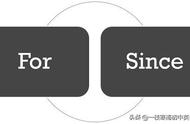
1.当主句为将来时态或具有将来意义时,时间状语从句和条件状语从句通常要用一般现在时表示将来意义,而不能直接使用将来时态。如:
I will tell him as soon as he arrives. 他一来我就告诉他。
Call him if the manager doesn't wake up in time. 你们经理到时醒不来, 就叫醒他。
注:有时也可见到 if you will 这样的说法,但那不是将来时态,而是表示意愿或委婉的请求(此处的 will是情态动词)。如:
If you will wait for a moment, I’ll go and tell the manager that you are here. 请等一下,我去告诉经理说你来了。
2.与since 从句搭配的主句的时态通常是现在完成时态。如:
He has lived here since 1999. 自1999年以来,他就一直住在这儿。
Where have you been since I last saw you? 自我上次见到你之后你到哪里去了?
注:在特定的语言环境中有时也可能用过去完成时或一般现在时。如:
It seems like years since we last met. 我们似乎几年未见面了。
Yesterday he told me that he hadn’t eaten anything since Tuesday. 他昨天告诉我自星期二以来他一直未吃任何东西。














